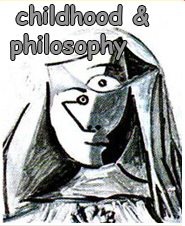practice philosophy and play. the ludic dimension in and of philosophy for children
Keywords:
gioco, filosofare, filosofia per bambiniAbstract
When we think about activities for children we inevitably take playing into account. Playing is in fact one of the most spontaneous and familiar activities of childhood. But play for children is not just a pastime, or a way simply to “have fun.” Playing is, above all, one of the main forms of children’s learning—in fact the major instrument available to the child for exploring the world. If this is so, what happens when we do philosophy with children? What does philosophy have to do with play? What is the role of the ludic dimension in philosophizing? Can we “play philosophy”? This paper addresses these issues, taking as a case in point an analysis of the Philosophy for Children program. P4C founder Matthew Lipman did not theorize or directly question the role of play within the curriculum he developed, but a careful reading of the program’s novels and manuals shows it to be saturated by a playful approach to philosophizing. The same applies to the secondary literature on P4C, where the element of play is almost universally implicitly understood as a basic dimension of doing philosophy together. This paper is an attempt to make the importance of playing in the progream explicit, and to show how playful children’s philosophizing can be, if it starts from an expression of wonder, shared in a community of inquiry.Downloads
Download data is not yet available.
Downloads
Published
2013-08-22
Issue
Section
articles




